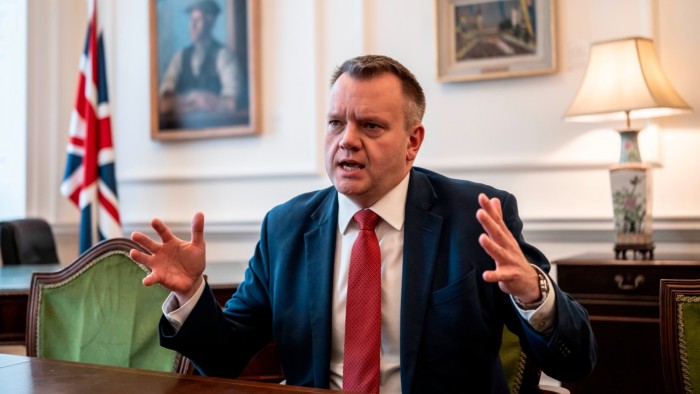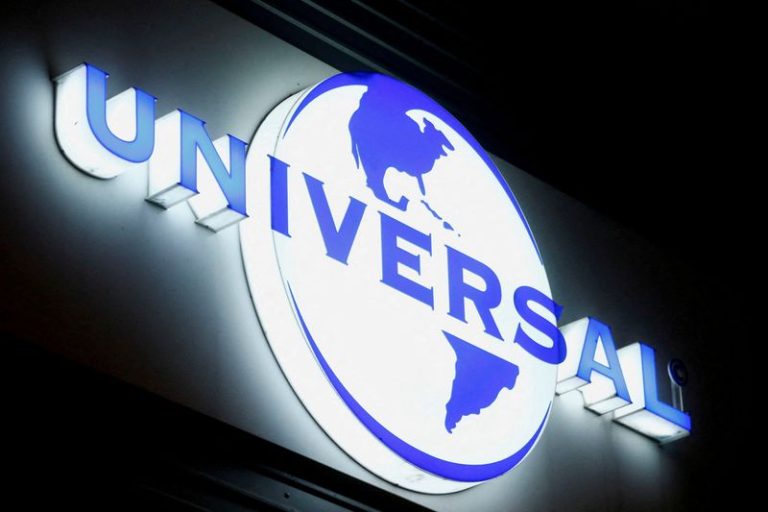Nick Thomas-Symonds, European relations minister, has confirmed publicly for the first time that Britain is looking at setting up a youth mobility scheme as part of a new “strategic partnership” with the EU, to be launched at a summit this month.
Days after Nigel Farage’s anti-EU Reform UK delivered a bloody nose to Labour in local elections, Thomas-Symonds used an interview with the Financial Times to prepare the ground for a politically contentious deal with Brussels at a summit in London on May 19.
The summit will agree a new UK-EU security and defence pact, increasing co-operation on procurement and training. But it will also set in train months of negotiations on a wide-ranging package of economic reforms and on the creation of some kind of youth experience scheme.
Thomas-Symonds, who is heading ministerial “reset” efforts, previously insisted there were “no plans” for a youth mobility scheme, a key EU demand that would enable young adults from member states to study and work in the UK and vice versa.
But on Tuesday he said that provided the UK government’s red lines were respected, “a smart, controlled youth mobility scheme would of course have benefits for our young people”.
Ministers have indicated privately they would cap numbers in any scheme and make it time limited, and Thomas-Symonds confirmed: “We will consider sensible EU proposals in this space.”
He said Sir Keir Starmer, prime minister, had made it clear Britain would not return to free movement or rejoin the customs union or single market. The government was also committed to bringing down net migration, he added.
But Thomas-Symonds said Britain already had youth mobility deals with countries including Australia and Uruguay, adding: “Nobody is suggesting any of those schemes, smart and controlled, are about freedom of movement.”
Thomas-Symonds also suggested Britain would be prepared to allow EU fishermen to continue to enjoy current access to UK waters when a five-year agreement expires in 2026.
He said it would have to be part of a wider deal to secure easier access for British fishermen selling their catch on the continent. “We are looking for an overall arrangement that is beneficial to our fishers,” he said.
Thomas-Symonds left open the door to Britain continuing to align with EU rules in food standards and animal welfare, saying: “We are not interested in divergence for divergence sake or a race to the bottom on standards.”
He also indicated Britain was prepared to accept a role for the European Court of Justice as part of a deal to cut red tape on cross-channel trade. “You would expect there to be an appropriate dispute resolution mechanism,” he said.
Asked if he feared a backlash from Farage and Kemi Badenoch’s Conservatives, Thomas-Symonds said he looked forward to presenting the benefits of an accord to voters, who rejected Labour and the Tories in local elections in England last week.
“I don’t worry about selling something that we believe would make the UK more secure and more prosperous,” he said. “This is a package for which we have a strong mandate from the British people. We need to move on from the debates of the past; this is forward-looking. It’s where the European continent is in the mid-2020s, not where it was in 2016.”
Badenoch has already claimed that a youth mobility deal risks creating “another avenue which people might use to game the system”, while warning that Starmer was about to “sell out” British fishermen.
After Reform’s gains last week, Thomas-Symonds’ comments are the prelude to a major political offensive by Starmer and other ministers to explain why closer EU ties will bring benefits to voters.
Thomas-Symonds talked repeatedly about a “package” of reforms that he claimed would be popular with the public, from cutting red tape at borders in order to bring down food prices to making it easier for professionals or touring musicians to work on the continent.
On a defence deal, he said: “At this moment in European history it’s not in the interests of the European continent to have fragmentation of our defence industrial capacity.”
Asked whether Britain might at some point rejoin the Erasmus student exchange programme, Thomas-Symonds did not rule it out.
“We don’t have plans to return to Erasmus,” he said. “But we are always open to listening to sensible proposals from the EU, but they have to be within the framework we’ve set out.”
He said any closer ties to Europe had to be “part of a package which is in the national interest”.
London has refused to cut university tuition fees for EU students to UK levels and any change to that policy would come with a considerable price tag. In the last 7-year Erasmus cycle, the UK contributed €2bn more than it received because more EU students used it than British ones.
Additional reporting by Andy Bounds in Brussels







